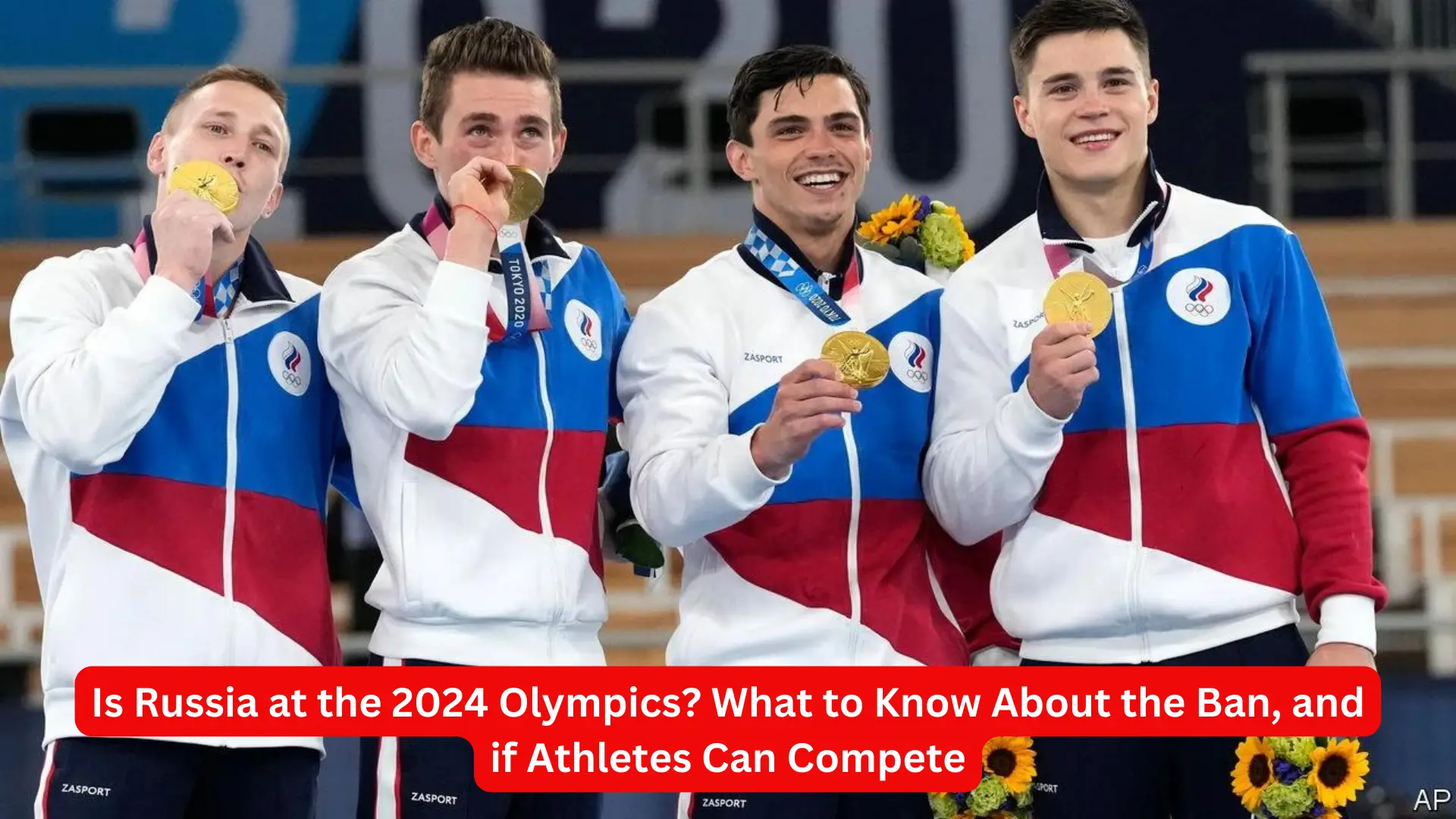Is Russia at the 2024 Olympics? What to Know About the Ban, and if Athletes Can Compete

In the ever-evolving landscape of international sports, the participation of nations in the Olympics is often subject to political, ethical, and regulatory scrutiny. One of the most discussed topics leading up to the 2024 Paris Olympics is the status of Russian athletes and the broader implications of the ongoing ban. This article delves into the intricate details of Russia’s Olympic ban, its impact on athletes, and the potential pathways for Russian athletes to compete under different banners.
The Background of the Ban on Russia
The Origins of the Ban
The roots of the current ban on Russia date back to 2019, when the World Anti-Doping Agency (WADA) imposed a four-year suspension on Russia from all major sporting events, including the Olympics and the World Championships. This decision followed a comprehensive investigation that revealed systemic doping practices and manipulation of doping tests by Russian authorities.
Extension of the Ban Due to the Ukraine Conflict
In addition to the doping scandal, the political climate surrounding Russia’s actions in Ukraine has further complicated its standing in the international sports community. In response to the Russian invasion of Ukraine in 2022, the International Olympic Committee (IOC) and other sports federations extended the ban, citing the need to maintain the integrity and neutrality of international sports.
Can Russian Athletes Compete in the 2024 Olympics?
Neutral Athlete Participation
Despite the ban on Russia as a nation, there are provisions that allow Russian athletes to participate in the Olympics under a neutral flag. These athletes must meet stringent criteria to prove their independence from the Russian state’s doping infrastructure. The neutral status is symbolized by competing under the Olympic flag and being referred to as “Olympic Athletes from Russia” (OAR).
Criteria for Neutral Status
To compete as neutral athletes, Russian participants must undergo rigorous testing by independent anti-doping agencies. They must also demonstrate a clean track record free of doping violations. This process is designed to ensure that only those athletes who have not been implicated in the systemic doping scandal can compete.
Impact of the Ban on Russian Athletes and Sports
Athletes’ Career Uncertainties
The ban has placed significant uncertainties on the careers of many Russian athletes. For those who are in their prime competitive years, missing out on the Olympics can mean losing invaluable opportunities for international recognition and professional advancement.
Psychological and Financial Strain
The psychological impact of the ban cannot be underestimated. Athletes who have dedicated their lives to their sport now face the stigma of competing under a neutral flag, which can affect their morale and public perception. Additionally, the financial strain from reduced sponsorships and funding exacerbates the challenges they face.
Russia’s Efforts to Challenge the Ban
Legal Appeals and Diplomatic Efforts
Russia has made numerous legal appeals to overturn the ban, arguing that it is politically motivated and disproportionately punitive. These appeals have been largely unsuccessful, as international sports bodies remain steadfast in their commitment to uphold the integrity of sports.
Ongoing Reforms and Compliance Measures
In an effort to regain its standing, Russia has implemented several reforms aimed at improving its anti-doping measures. These include restructuring its national anti-doping agency, enhancing transparency, and cooperating with international anti-doping organizations. However, the effectiveness and sincerity of these efforts are still under scrutiny.
Global Reactions to Russia’s Ban
Support from Other Nations
Many countries and international organizations support the ban, viewing it as a necessary step to ensure fair competition and deter future doping violations. The ban is seen as a critical measure to uphold the values of sportsmanship and integrity.
Criticism and Calls for Reevaluation
Conversely, there are voices within the global sports community that call for a reevaluation of the ban. Some argue that the collective punishment of all Russian athletes, including those not implicated in doping, is unfair. They advocate for more individualized assessments rather than a blanket ban.
The Future of Russian Athletes in International Sports
Potential Pathways for Reintegration
Looking ahead, the future of Russian athletes in international sports hinges on the country’s ability to comply with global anti-doping standards and address the underlying issues that led to the ban. Continued reforms and transparent compliance will be key to reintegrating Russian athletes into the global sports community.
Long-term Impact on Russian Sports Culture
The long-term impact of the ban extends beyond the immediate Olympic cycles. It has prompted introspection within Russia regarding its sports culture and governance. Moving forward, fostering a culture of clean sports and ethical practices will be essential for rebuilding trust and credibility.
Conclusion: Navigating the Complexities of International Sports Governance
The situation surrounding Russia’s participation in the 2024 Olympics is emblematic of the broader challenges in international sports governance. Balancing the need for accountability with the principles of fairness and inclusivity remains a delicate task. As we approach the Paris Olympics, the world will be watching to see how these complexities unfold and what they mean for the future of global sports.




